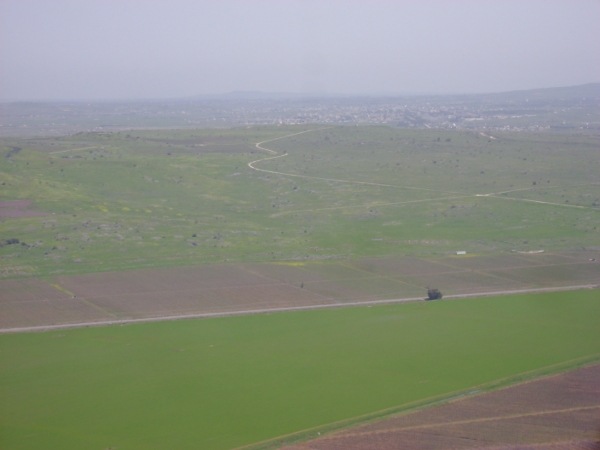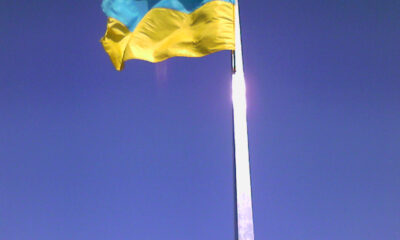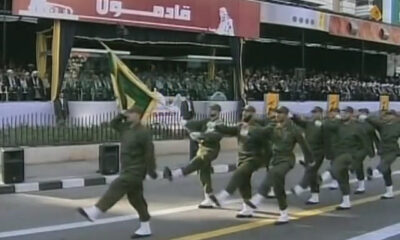World news
PR war over Israel

The PR war over Israel is more intense this year than in past years. Meanwhile, Israel is preparing for hot wars.
PR war in perspective
“Public relations” is a dirty game. Israelis know it. Their word for it is hasbarah, which means “propaganda.” They still use that word today, to describe something they have to do.
As well they might. Because ever since the 1967 War, propaganda is what the Arabs have thrown at them. The Arabs learned in 1967 (and again in 1973) that they could not defeat Israel by force of arms. (Quite opposite, in fact!) And so they fight a PR war.
And the Arabs have friends. Those friends get upset sometimes when Israel scores “victories” in the PR war. But a close look at their accounts reveals another classic PR war tactic: to pretend to suffer defeat, so that people will sympathize. Only in a PR war is defeat something to brag about.
PR war – an example
This piece in The New York Times (May 16, 2011) is a prize example. The author is Mahmoud Abbas, head of the Palestinian Authority that controls some West Bank communities. He begins his article with a pity-me:
Sixty-three years ago, a 13-year-old Palestinian boy was forced to leave his home in the Galilean city of Safed and flee with his family to Syria. He took up shelter in a canvas tent provided to all the arriving refugees. Though he and his family wished for decades to return to their home and homeland, they were denied that most basic of human rights. That child’s story, like that of so many other Palestinians, is mine.
It is also a lie. Your editor has no reason to doubt that Mahmoud Abbas ran off to Syria with his family in the 1948 War for Independence. But nobody forced him to. Israel allowed Arab residents an option to stay and become full citizens of Israel. Instead, Abbas’ father took a gamble with his family’s future, a gamble that his leaders offered him. The gamble was that the Arabs would win the war and shove the Jews into the Mediterranean.
The Arabs lost. They had to settle for an armistice line in 1949. For eighteen years they waited behind that line, while they plotted to take what they wanted by force. In 1967, the Tzva HaHaganah LeIsrael gave them what for, and in spades. They would try again in 1973. They almost lost Damascus that time. They have fought their PR war ever since.
PR war – how it works
The Arab PR war works because few Americans, or residents of other lands, will take the trouble to visit the Middle East and see for themselves what life is really like. Your editor traveled to Israel for ten days, from March 28 through April 7, 2011. Total cost: about $4600 US. That included sitting in an airplane for ten and one-half hours just to get to Israel, and eleven and one-half hours to get back. (No complaints: El Al Israel Airlines makes those hours as pleasant as any airline can.) Not many people are going to do that, unless they have relatives in Israel, or are on pilgrimage/assignment (like your editor), or are on a one-way trip (like your editor’s tour guide, 34 years ago).
So most people see the dreadful-looking pictures of dead or wounded protesters, pictures that can make for compelling photojournalism. Unless you have stood, as your editor did, on the precipice in the Golan Heights and gazed out on the Damascus Road. And stood on the top of Mount Carmel and looked across the Valley of Jezreel at Nazareth, the “Arab capital of northern Israel.” And walked the street of the Old City of Jerusalem, kissed the Western Wall, and walked its tunnel. And climbed or ridden to the top of Masada, and heard the thrilling and tragic story of the last redoubt of resistance to Roman invasion.
That sort of thing gives a perspective that no amount of propaganda can shake. But since so few Americans acquire that perspective, they see only the pictures that the Arabs give them.
The Israelis could offer their own pictures, of rocket-attack damage in Sderot, or of Samál rishón Gilad Shalit IDF, still a prisoner in Gaza for five years, after Hamas cross-border raiders captured him. But Israel does not do things that way. Instead they answer with the truth, and hope that enough people will recognize and appreciate it.
MK (and Minister Without Portfolio) Benny Begin talked about this yesterday on Arutz-7 radio. His Likud party is working for “two states for two peoples.” Maybe Likud thinks that at least those Arabs wouldn’t dilute the Jewish vote in the elections. Begin did not comment on that, but rejects the policy as dangerous. He pointed out the obvious: though the Arabs protest the taking of the West Bank in 1967, they do so in an annual event (Nakba Day) that whines about their defeat 18 years earlier. (This year, they are also planning protests on “Setback Day,” that marks their 1967 defeat.)
[amazon_carousel widget_type=”ASINList” width=”500″ height=”250″ title=”” market_place=”US” shuffle_products=”True” show_border=”False” asin=”B002EQA102, 0471679526, 044654146X, 0789209284, 0688123635, 0345461924, 0253349184, 1929354002, B00005S8KR, B000RPCJPC” /]
More than a PR war coming
Israelis now see more than a PR war in their future. Minister for Strategic Affairs Moshe Yaalon told Russia’s Interfax that “the entire civilized world” must take “joint action” to stop Iran from making nuclear weapons. Rav Aluf Benny Ganz, chief of staff of the IDF, told a Knesset committee that his forces must counter many new threats varying “from the knife to the nuke.” (He also said that he’s ready for when any “refugees” try again to send their rag-tag battalions to storm the borders.)
And today, displays of Arab militancy are harder to hide. Today this Special Dispatch came from the Middle East Media Research Institute, describing a rally in Gaza extolling the late Osama bin Laden. One speaker quoted Bin Laden’s last message:
America and its people will enjoy no security before we enjoy true security in Palestine.
At least some Americans have joined the PR war, on the Israeli side. This and other provocations are part of the reason. They should also join it because they know who is telling the truth, and who is lying. And who is on America’s side, and who is not.
Featured image: the Damascus Road, from the Golan Heights. Photo: CNAV.
Terry A. Hurlbut has been a student of politics, philosophy, and science for more than 35 years. He is a graduate of Yale College and has served as a physician-level laboratory administrator in a 250-bed community hospital. He also is a serious student of the Bible, is conversant in its two primary original languages, and has followed the creation-science movement closely since 1993.
-

 Executive4 days ago
Executive4 days agoSecret Service chief gets no solace
-

 Executive3 days ago
Executive3 days agoWaste of the Day: Louisville Taxpayers Pay Nearly $600,000 For Empty Building’s Maintenance, Security
-

 Guest Columns4 days ago
Guest Columns4 days agoFear Itself: Democrats’ Favorite Strategy Caused Their Current Chaos
-

 Executive3 days ago
Executive3 days agoWhere is Joe Biden – or Jill?
-

 Executive1 day ago
Executive1 day agoWaste of the Day: Throwback Thursday: Cities Used Crime Prevention Funds on Soccer Games, Paper Shredding
-

 Executive2 days ago
Executive2 days agoFacile and politically motivated suggestions
-

 Civilization5 days ago
Civilization5 days agoBuild Iron Dome in the United States To Prepare for Israel’s Worst Day
-

 Executive4 days ago
Executive4 days agoThe Emerging GOP Plan To Beat Kamala Harris













Canadian liberals are being suckered too.
Just this last week one of the parlament pages, a ditz by the name of Bridgette DePape, got fired for holding a “Stop Harper” during session, then yapping on the news about Canada needing an “Arab Spring.”
I haven’t been to Israel’s part of the Middle East, but I’ve sailed to other Arab, and Muslim countries, the Maldives, Oman, and Egypt, and explained on a website calling DePape a hero, what it’s really like over there.
That she would never being able to get a job like hers in in Muslim society, nor would she be able to puruse her acting/dancing career.
Basically there shouldn’t be a woman in our society supporting the kind of system women have to endure in Muslim society.
Women who are not Muslim, are considered whores, and those who sailed with us had to have the guys surrounding them as Muslim men thought nothing of copping a feel.
Anybody who wants to find out what life is like over there, I wrote, needs to go without a camera crew, and get off the tourist paths.
As you probably have figured out by now, if you’ve read some of my other posts (check “Human Interest” for example), is that I have been to Israel. No, I did not go into any PA-controlled lands. (The Ministry of Tourism supplied my tour guide, and, I imagine, gave her strict orders to keep us away from Jericho and other such cities.) No, I did not go into the Western Negev; all I saw in the Negev were the southern basin of the Dead Sea, the wilderness (and now the kibbutz) at Ein Gedi, and, of course, Masada. But I saw enough to appreciate what those people have to deal with.
[…] PR war over Israel […]